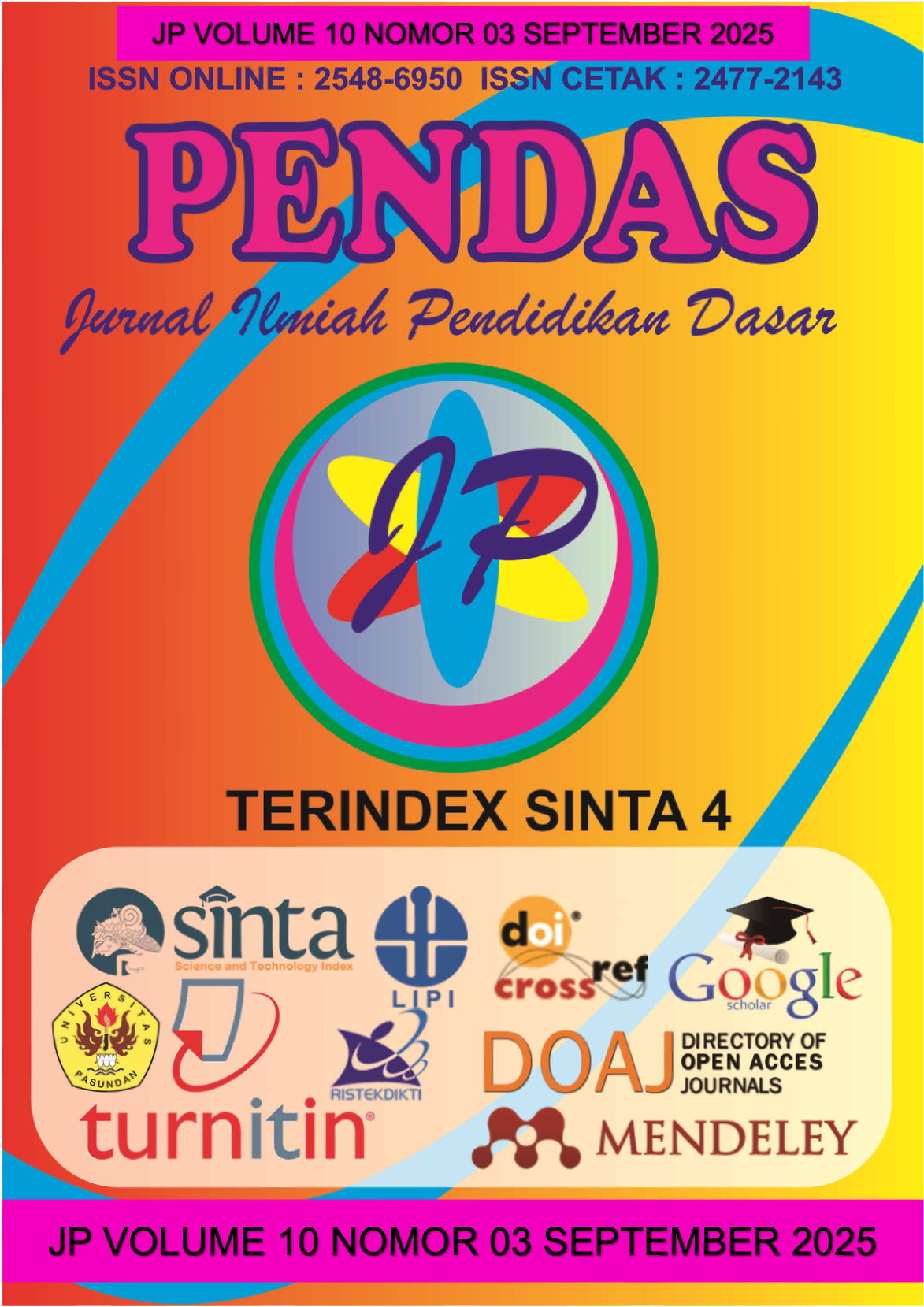MANAJEMEN KERJASAMA SMK PUSAT KEUNGGULAN (SMK PK) MUHAMMADIYAH WAY SULAN DENGAN DUNIA USAHA DAN INDUSTRI DALAM MENINGKATKAN KOMPETENSI LULUSAN
DOI:
https://doi.org/10.23969/jp.v10i03.30915Keywords:
Collaboration Management, Center of Excellence Vocational High School, DUDIAbstract
The collaboration management between the Center of Excellence Vocational High School (SMK PK) and the Business and Industrial Sector (DUDI) is one of the strategies to strengthen the link and match between education and the world of work, ensuring that vocational graduates possess competencies aligned with industry needs. Data from the Central Statistics Agency (BPS) indicates that the open unemployment rate among vocational graduates remains high, reaching 11.13% in 2021 and 9.42% in 2022. To address this issue, the government issued Ministerial Regulation No. 165/M/2021 as an effort to improve the human resource quality in vocational schools through the SMK Center of Excellence program, which emphasizes the importance of strategic partnerships with DUDI.
This study aims to describe how collaboration management is implemented at SMK Muhammadiyah Way Sulan in establishing partnerships with business and industry. The collaboration programs include curriculum synchronization, project-based learning, industry-based teaching, internship programs, competency certifications, training updates, applied research, as well as scholarship and employment agreements. The research employed a descriptive qualitative approach with data collected through interviews, observation, and documentation. Data analysis was conducted using data reduction, data presentation, and conclusion drawing techniques.
The results show that collaboration management is implemented using the SMART model (Specific, Measurable, Achievable, Result Focused, Time Bound), reinforced with Islamic principles such as consultation, mutual assistance in good deeds, and communication based on qoulan sadida, baligha, ma’rufa, karima, layyinan, and masyura. Periodic evaluations are conducted to assess program effectiveness and serve as a basis for future collaboration development.
Downloads
References
Dewantara, H. (2009). Menuju manusia merdeka. (Yogyakarta : Leutika), 21.
Indonesia, P. R. (2003). Undang-Undang Republik Indonesia Nomor 20 Tahun 2003. Pemerintah Republik Indoensia.
Ir Sintha Wahjusaputri, M. M., Rahmanto, M. A., Suciani, S. P., Susi Kustantini, S. E., & Azizah, S. (2023). Program SMK Pusat Keunggulan (Centre of Excellence) pada Pendidikan Menengah Vokasi. CV. Bintang Semesta Media.
Mahande, I. R. D. (2023). Pengantar Pendidikan Kejuruan. Indonesia Emas Group.
Mujab, S. (2023). Transformasi Pendidikan SMK: Menuju SDM Unggul, Kreatif, dan Inovatif Berkelanjutan. Penerbit Adab.
Pudyastuti, E., Ginting, R. S., & Ginting, M. (2022). Sosialisasi Program SMK Pusat Keunggulan pada SMK Immanuel. Pubarama: Jurnal Publikasi Pengabdian Kepada Masyarakat, 2(1).
Jurnal :
Fahmayani, E. N. (2021). Pelaksanaan Link and Match 8+ I di SMK Pusat Keunggulan SMKN 1 Dlingo. Prosiding Pendidikan Teknik Boga Busana, 16(1), 1–7.
Kaharuddin, K. (2020). Kualitatif: Ciri dan Karakter Sebagai Metodologi. Equilibrium: Jurnal Pendidikan, 9(1), 1–8. https://doi.org/10.26618/equilibrium.v9i1.4489
Mardi, M. (2021). Meningkatkan mutu sumber daya manusia bidang animasi melalui program SMK PK (Pusat Keunggulan). JIRA: Jurnal Inovasi Dan Riset Akademik, 2(8), 1259–1268.
Purnomo, S., & Triyono, M. B. (2018). Efektifitas Technopreneurship Dengan Model Pembelajaran Cooperative Learning By Technopreneur For SMK Untuk Siswa Di SMK. Jurnal Taman Vokasi, 6(1), 120–130.
Sugiyono, D. (2013). Metode penelitian pendidikan pendekatan kuantitatif, kualitatif dan R&D.
Suwatah, S. (2017). Prinsip-prinsip manajemen Islam. EDUSIANA: Jurnal Manajemen Dan Pendidikan Islam, 4(1), 1–12.
Wardani, T. F., & Raihani, R. (2024). Principal leadership at vocational high school: Center of excellence (SMK PK) Muhammadiyah 2 Pekanbaru. Asatiza: Jurnal Pendidikan, 5(3), 267–278.
Downloads
Published
Issue
Section
License
Copyright (c) 2025 Pendas : Jurnal Ilmiah Pendidikan Dasar

This work is licensed under a Creative Commons Attribution 4.0 International License.



















